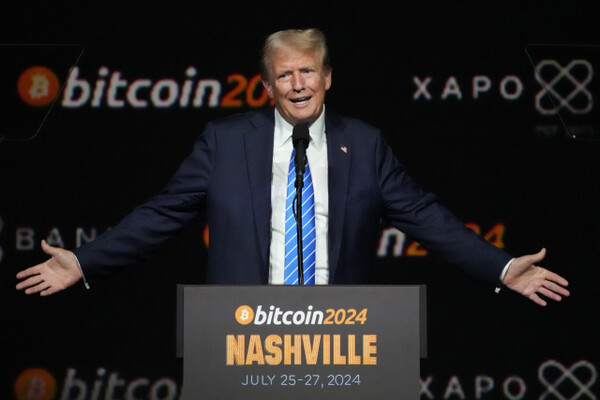
Bitcoin prices also fell after the first debate between the US presidential candidates in November did not mention virtual asset policies. The decline in approval ratings for former US President Donald Trump, the Republican presidential candidate who showed a pro-virtual asset stance immediately after the debate, also contributed to the price decline.
According to Cointelegraph on the 10th (local time), Democratic candidate Vice President Kamala Harris and former President Trump did not mention virtual asset policies during the debate held that day. Vice President Harris and former President Trump discussed the economy, abortion rights, immigration, and foreign policy.
This debate attracted a lot of attention from the market, as it was the first televised debate between former President Trump, who is friendly to virtual assets, and Vice President Harris, who is relatively cautious.
The industry has been predicting that if former President Trump, who calls himself the “virtual asset president,” is elected, virtual asset prices will rise significantly. On the 9th, global investment bank Bernstein predicted in a report that “if Trump wins, BTC prices will hit a new high this year.”
In anticipation of the debate, the Bitcoin price hit $57,983 at one point on the morning of the 11th, up 2% from the previous day. However, as the debate ended without addressing any virtual asset-related agendas, the Bitcoin price fell to $56,444 at 3:30 PM that day, down 0.68% from the previous day.
There was also an analysis that the debate was favorable to Vice President Harris. According to decentralized prediction platform Polymarket, immediately after the debate, former President Trump's approval rating fell by 3 percentage points (P) to 49%, tying with Vice President Harris.
Investors’ interest in the U.S. presidential election is growing. According to Gemini’s “Global Virtual Asset Status” published on the 10th, 73% of Americans who own virtual assets responded that “the presidential candidates’ stance on virtual assets will influence their vote.” Gemini explained, “This is the first time in U.S. history that virtual assets have emerged as an important election issue.”







